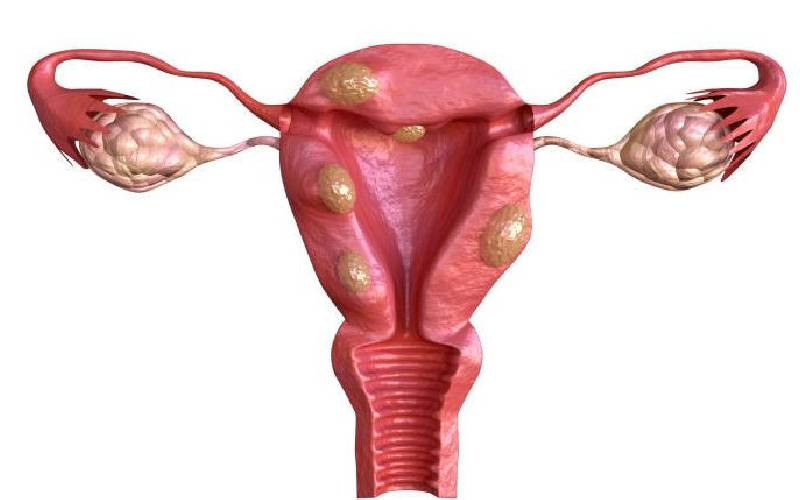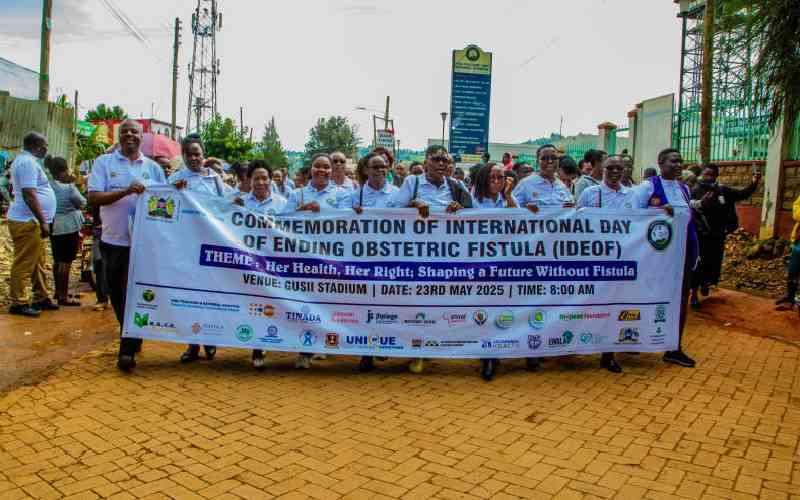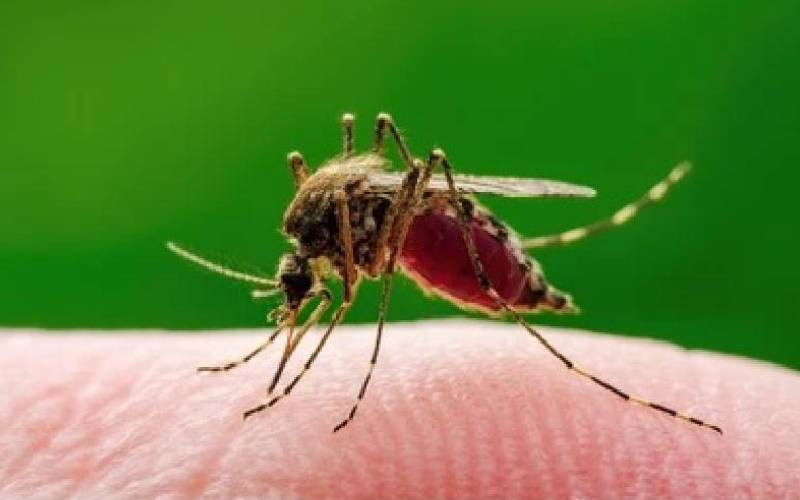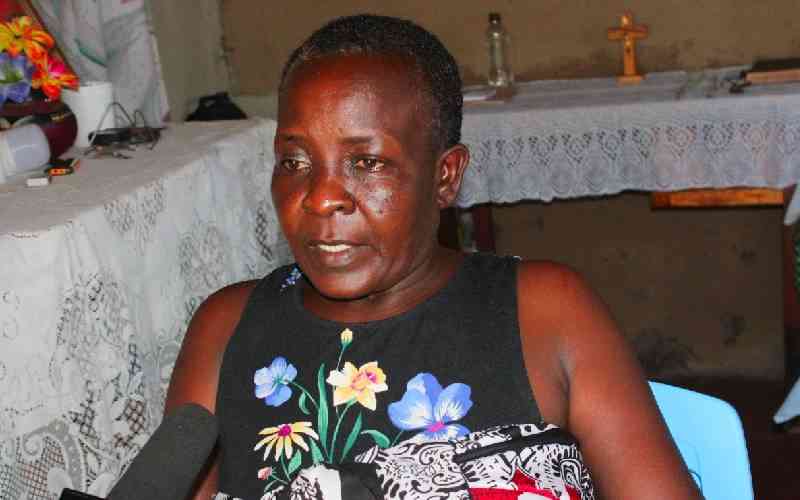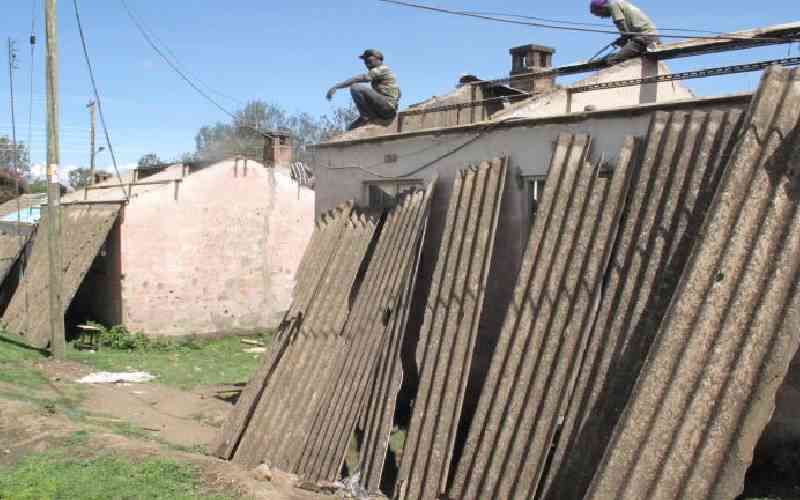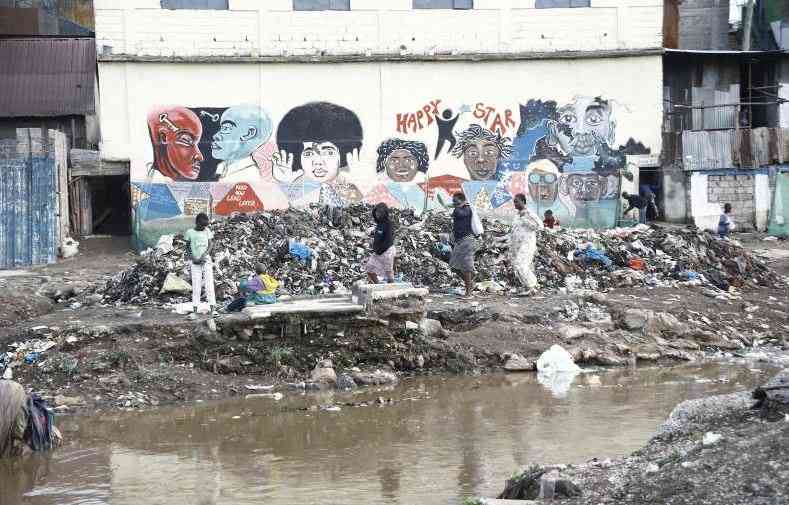
Slum dwellers in Nairobi heavily rely on solid fuels for cooking and heating because they cannot afford clean fuels or electricity. They use unclean biomass, which contributes about 15 per cent of PM2.5 concentrations.
Many depend on paraffin, firewood, and charcoal for cooking—levels four times higher than the World Health Organisation’s (WHO) recommended exposure.
The dangers posed by unclean fuels have prompted Christine Mwelu Mutuku, a resident of Mukuru slums, to mobilise locals to clean their environment.
Mutuku, founder of Muungano Wa Wanavijiji in Mukuru Sinai, says, “I usually advise residents that if they are cooking with charcoal, paraffin, or burning waste, they should do it in the open because most houses in Mukuru lack ventilation. Factories in the Industrial Area also discharge waste into the Ngong River, polluting water and air.”
Shaida Mohammed, an elder from Mukuru Sinai, has appealed to the National Environment Management Authority (Nema) to act against factories that pollute with impunity. She says some houses lack even pit latrines, exposing residents to health risks.
“Airborne diseases such as coughing, asthma, diarrhoea, and dysentery are common here because clean water sometimes mixes with dirty water,” she adds.
Indoor air pollution remains one of Mukuru’s biggest challenges. Residents are urging the government to provide clean cooking energy and regulate metal recycling and iron-melting industries.
The WHO recently ranked Nairobi the second most polluted city in Africa. Joseph Kamau from the county environment department says the county has installed air quality controls and ensures non-recyclable waste is taken to Dandora dumpsite.
Environmental scientist Professor Daniel Nyamai warns that air pollution harms biodiversity, accelerates climate change, and degrades life quality. Nairobi generates 3,000 tonnes of solid waste daily, yet Dandora receives only 2,000. Kamau says offenders face Sh500,000 fines as eight million people die globally each year from pollution-related illnesses.
Last September, Nairobi city benefited from clean-up exercises to improve the quality of air breathed.
The clean up exercises were undertaken by Nairobi Breathe Air Initiative, a programme receiving support from the Clear Air Fund.
 The Standard Group Plc is a multi-media organization with investments in media
platforms spanning newspaper print
operations, television, radio broadcasting, digital and online services. The
Standard Group is recognized as a
leading multi-media house in Kenya with a key influence in matters of national
and international interest.
The Standard Group Plc is a multi-media organization with investments in media
platforms spanning newspaper print
operations, television, radio broadcasting, digital and online services. The
Standard Group is recognized as a
leading multi-media house in Kenya with a key influence in matters of national
and international interest.


